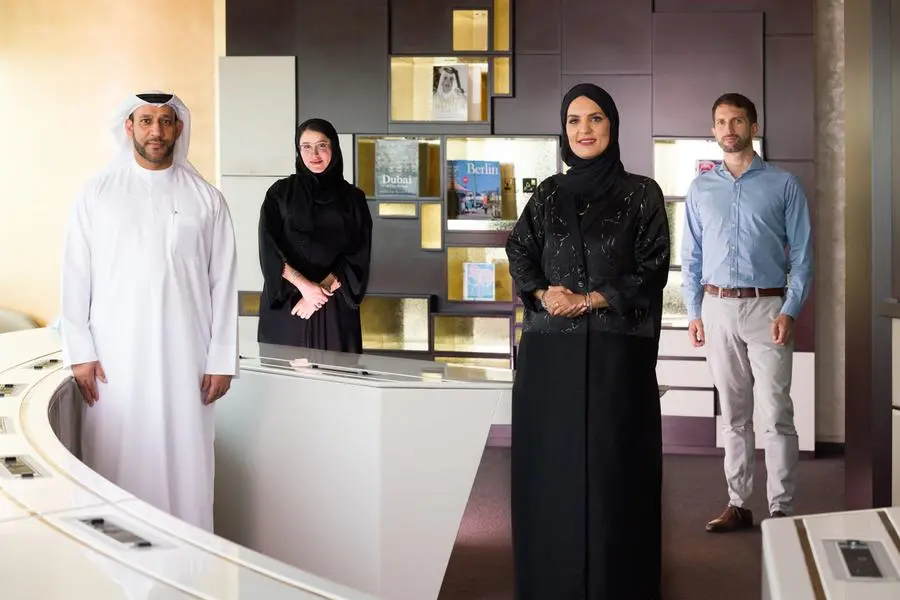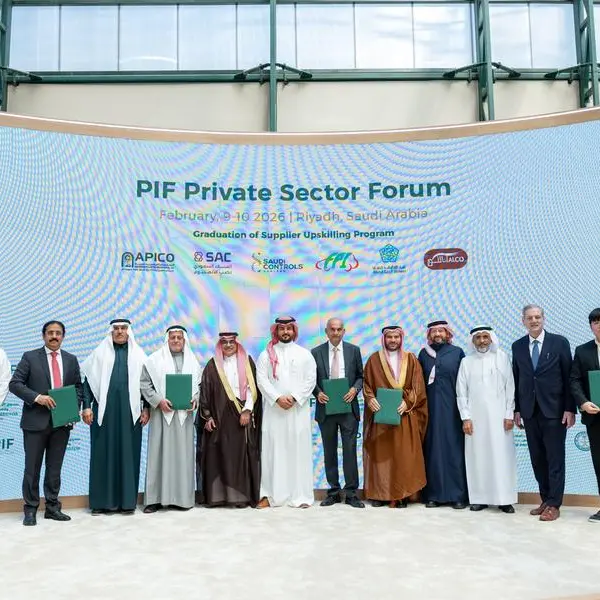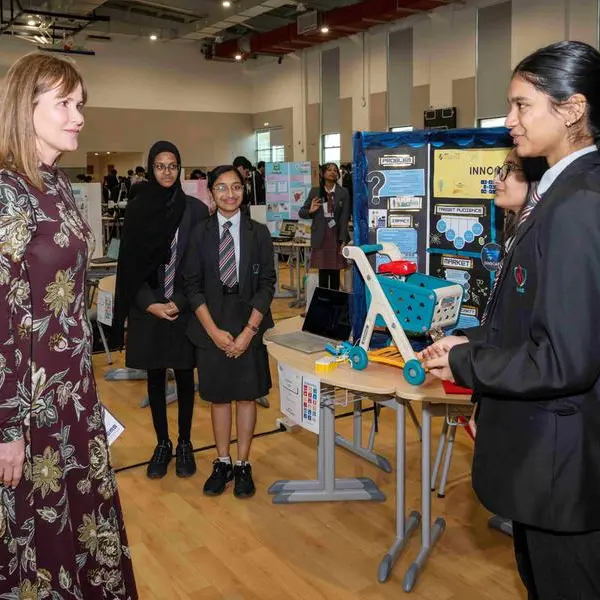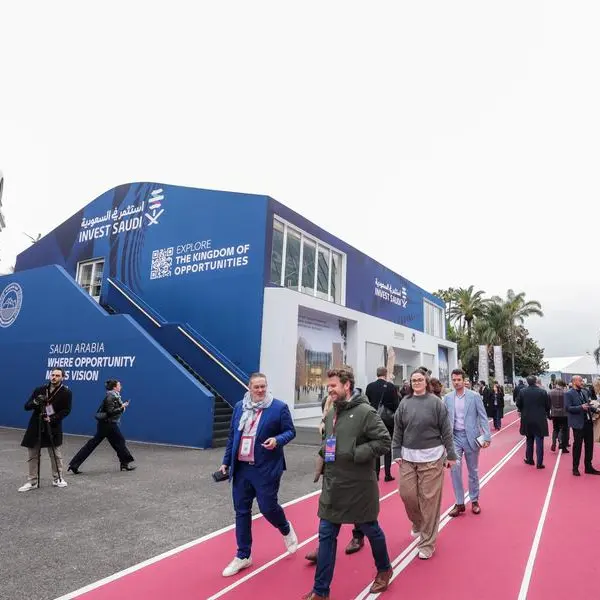PHOTO
- Emirati spearheads from the world of engineering include Dr. Ali Hilal-Alnaqbi and Reem Al Marzouqi alongside academia such as Dr. Engineer Suaad Al Shamsi and Professor Tadhg S. O'Donovan
- The James Dyson Award is an international design award that celebrates, encourages and inspires the next generation of design engineers
- National winners will now receive AED 24,000 alongside high-profile recognition for their idea whilst global winners could win prizes up to AED 145,000
Returning to the UAE for the fifth year, the James Dyson Award has announced the lineup of esteemed judges for the 2022 edition of the prestigious award. This year’s panel is made up of well-respected engineers and spearheads in the region who aim to continue to foster the spirit of innovation amongst undergraduates and recent graduates of engineering and design. As part of the awards, students will present their innovations to the expert panel of judges to be in with the chance of winning a cash prize and high-profile recognition in the national heats. Those that win a National accolade proceed to the International shortlist and awarding stages, where James Dyson himself selects his global winners.
The James Dyson Award is an international design award that celebrates, encourages and inspires the next generation of design engineers to “Design something that solves a problem”. It's open to current and recent design engineering students and is run by the James Dyson whose mission is to get young people excited about design engineering.
This year’s judging panel welcomes back Dr. Ali Hilal-Alnaqbi, professor at Abu Dhabi Polytechnic university and invertor of artificial liver; Reem Al Marzouqi, Emirati engineer and the first citizen of the UAE to be granted a patent in the USA for her car that can be driven without hands; Dr. Engineer Suaad Al Shamsi, the first Emirati woman to work as an Aviation and technical engineer, who has judged the James Dyson Awards for four years; and Professor Tadhg S. O'Donovan, Head of Engineering and Physical Sciences at Heriot-Watt University.
Professor Tadhg S. O’Donovan who has been on the judging panel for the awards for the past three years shares an insight on what makes an award-winning entry and what he hopes to see from this year’s entrants; “I would encourage all students to focus on the invention and to turn convention on its head with the aim of surprising all of the judges. This award is a great opportunity for the young talents of the UAE to showcase their thinking and inventiveness in tackling problems in today’s society.”
The James Dyson Award gives students the opportunity to establish a future as an inventor and gives those who apply the opportunity to win a cash prize, as well as providing opportunities for media exposure and for other investors to discover their inventions, giving students the opportunities to start a business.
In 2021 the Awards saw a record-breaking number of entries and was the first year to introduce the sustainability prize. In 2022, there continues to be two monetary global prizes for the International Sustainability winner and the overall International winner, however first each participating country and region will award a national winner and two national runners-up.
The UAE is the only Middle East country to host the awards currently. Entries are judged on criteria which includes both technical and commercial feasibility, to encourage entrants to develop ideas that could help them build their own business ventures in future.
The deadline for entry to the award is 6th July, the judges will then deliberate the inventions with the National winners being announced on 7th September. To find and more and submit an entry, visit www.jamesdysonaward.org
Detailed profiles of the judging panel are listed below:
- Dr. Ali Hilal Alnaqbi is an Emirati innovator in the medical field who received the UAE Pioneers Award for developing an artificial liver that could save thousands of lives. The first of its kind invention was credited as one of the most important medical breakthroughs by an Emirati. He was also selected by the World Economic Forum (Davos) to be one of 40 exceptional researchers from the Arab World. Dr. Ali has registered five US patents related to the bioartificial liver device, stress, and strain testing equipment and has published over 44 research papers in Applied Engineering and Biomedical journals. He is currently the Director at Abu Dhabi Polytechnic and an active member of the Emirates Scientific Council and WEF Future Councils.
- Reem Al Marzouqi is an Emirati engineer and the first citizen of the UAE to be granted a patent in the United States of America for designing a driverless car. She is currently working with Hopemakers.co, a social enterprise that is focused on volunteering projects to renovate facilities in healthcare and education in developing countries.
- Dr Eng. Suaad Al Shamsi is an aircraft engineer and aviation advisor who has worked with many of the leading companies in aviation and engineering including Messier Bugatti, Honeywell, Kunz, Airbus and Boeing, Emirates and Etihad. Dr Al Shamsi holds a DBA and an MBA in Aviation Management, a degree in Aerospace Engineering and was awarded an honorary doctorate for her work in supporting and empowering women in aviation. She is also one of the founders of the Middle East Chapter of Women in Aviation and is a member of a number of industry associations. Dr Al Shamsi is currently an aviation consultant for Abu Dhabi’s new Midfield Terminal, one of the biggest airport terminals in the world, as well as CEO of L2L consultancy.
- Professor Tadhg O'Donovan, Head of Engineering and Physical Sciences, Heriot-Watt University, Dubai. After gaining his PhD from Trinity College Dublin in 2005, Professor O’Donovan joined Heriot-Watt University, Edinburgh in 2007 as a lecturer in Mechanical Engineering, before becoming Associate Professor in 2015, and then being appointed as the Associate Head of the School for Engineering and Physical Sciences at the Dubai Campus in 2018. Professor O’Donovan has a research background in thermal science which now focuses on solar energy conversion, systems and storage, in a range of use scenarios, as well as solar management in a range of other applications. He has published in excess of 80 research papers and has established collaborative links with a number of renewable energy companies.
About the competition
The brief
Design something that solves a problem. This problem may be a frustration that we all face in daily life, or a global issue. The important thing is that the solution is effective and demonstrates considered design thinking.
The process
Entries are judged first at the national level by a panel of external judges. Each operating market awards a National winner and two National runners-up. From these winners, a panel of Dyson engineers then select an international shortlist of 20 entries. The top 20 projects are then reviewed by Sir James Dyson who selects the International winner, International runners-up and the International Sustainability winner.
The prize
- The International winner receives a prize of AED 145,000
- The Sustainability winner receives a prize of AED 145,000
- The two International runners-up receive AED 24,000
- Each National winner receives AED 24,000
Sustainability winner
In 2020, the James Dyson Award introduced a new, additional prize that recognises efforts in sustainability. The Sustainability winner is chosen by Sir James Dyson from the international top 20 finalists. Potential winners of this accolade will have paid close attention to their invention’s part in solving a sustainability-related problem and today’s sustainable agenda. This could be through its materials, design process, methods of manufacture, or to the problem it is trying to solve.
The deadline to apply:
6th July 2021.
How to enter
Candidates enter through an online application form via the James Dyson Award website.
Entrants should explain what their invention is, how it works, and their development process. The best entries solve a real problem, are clearly explained, show iterative development, provide evidence of prototyping and have supporting imagery and a video.
Eligibility criteria
The James Dyson Award runs in 28 countries and regions worldwide. These are: Australia, Austria, Belgium, Canada, China, France, Germany, Hong Kong, India, Ireland, Italy, Japan, Korea, Malaysia, Mexico, Netherlands, New Zealand, Philippines, Poland, Russia, Singapore, Spain, Sweden, Switzerland, Taiwan, UAE, UK, and USA. The Award launches for the first time in Poland in 2021.
Entrants must be, or have been within the last four years, enrolled for at least one semester in an undergraduate or graduate engineering/design related course. This course must be at a university in a country or region chosen to participate in the James Dyson Award.
In the case of team entries, all members must be or have been within the last four years, enrolled for at least one semester in an undergraduate or graduate programme at a university in a country or region chosen to participate in the James Dyson Award. At least one team member must have studied an eligible subject in engineering or design.
From 2020, those participating in a degree level apprenticeship at Level 6 or Level 7, and those who have completed said apprenticeship in the past four years, are now eligible to enter the award.
Further FAQs can be found on the James Dyson Award website
-Ends-
Contact
For more information, please contact:
Rania Maroun - Rania.maroun@dyson.com
Weber Shandwick - Dyson@webershandwick.com




















